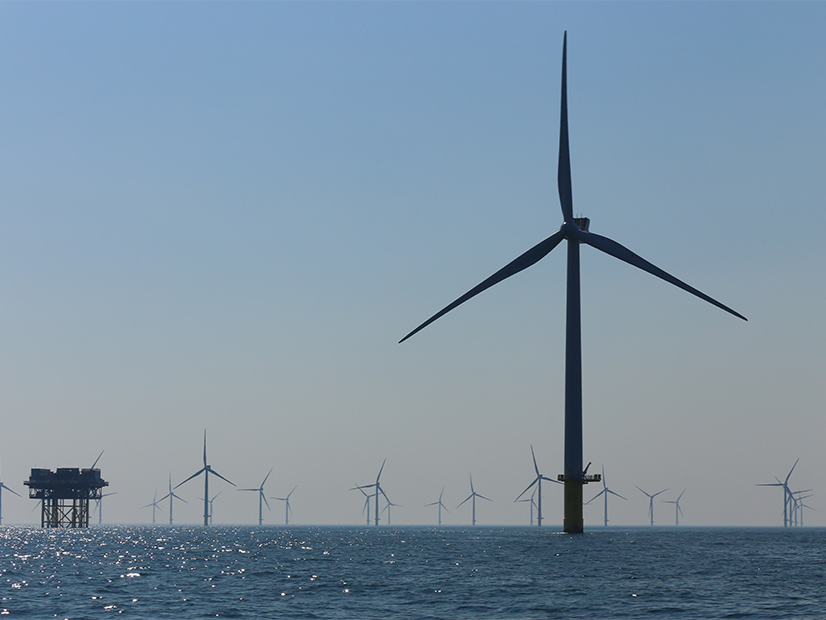LANSING, Mich. — Michigan Gov. Gretchen Whitmer (D) proposed Wednesday that the Public Service Commission assume responsibility for approving sites for solar and wind energy, a move that would take authority from local governments.
Numerous solar and wind projects have been held up over concerns by local planning commissions, and in a number of localities — especially rural townships — voters have enacted ordinances severely limiting the ability to build large-scale projects.
Whitmer called for the PSC to have that authority — saying it essentially would be the same power the PSC has over transmission and fossil fuel generation — in an address outlining her priorities as the Michigan Legislature prepares to return to session Sept. 5 following its summer recess.
Her State of the State-style address (no governor has given two State of the State addresses in one year) also called for the state to boost its current 15% clean energy production standard to 100% in the next 15 years. Her address also dealt with issues including health care, prescription coverage and abortion.
Sen. Sean McCann (D), chair of the Senate Energy and Environment Committee, hailed Whitmer’s proposal, saying leaders owed it to residents to “move as fast as possible to eliminate carbon emissions from direct power generation.”
He also said discussions on legislation already introduced on clean energy are underway, with proposed substitutes for the committee to consider anticipated in September. Legislation on giving the PSC broader siting authority on renewable projects still is being developed.
In an interview with Gongwer News Service-Michigan Report — a daily publication covering Michigan government and politics — Whitmer said adopting the new clean energy standard could attract economic development. “This is something companies are demanding. And so a state that is aggressive in this space is going to have a lot of benefits in addition to cleaner, reliable, affordable energy,” she said.
Both of the state’s largest utilities, DTE Energy and CMS Energy, have announced plans to end coal-fired generation, though they have not ruled out natural gas.
Environmental activists called on the Legislature to quickly adopt Whitmer’s proposals. Lisa Wozniak, of the Michigan League of Conservation Voters, said Michiganders are tired of paying some of the highest energy rates in the country while enduring some of the worst service in the Midwest. Storms last week left hundreds of thousands of residents across the state without power, some for as long as five days.
Whitmer’s proposal met with sharp opposition from legislative Republicans.
Sen. Aric Nesbitt (R), the Senate minority leader, called her proposals “bad news” for Michigan residents’ pocketbooks. She should have instead argued for cutting taxes, reducing state regulations and investing in “access to reliable and affordable energy,” Nesbitt said. Instead, he said, Whitmer is “doubling down on radical policies” that will cripple economic development and boost inflation.
While Democrats control both houses of the Legislature for the first time in 40 years, they hold slim majorities in each chamber and can ill afford to lose a single vote from a member on any proposal.
Local government groups also raised objections to losing oversight on siting decisions, saying local governments can have unique issues that should be handled by local authorities.
Judy Allen, with the Michigan Townships Association, said local governments want to be part of the decision process and “have our voices be heard.”
Spokespersons for both CMS and DTE called for balancing carbon-reduction goals with reliability and affordability concerns. A CMS spokesperson said the utility already has some of the most aggressive clean energy plans in the U.S., and a spokesperson for DTE said the state needed to consider using all available technologies.



